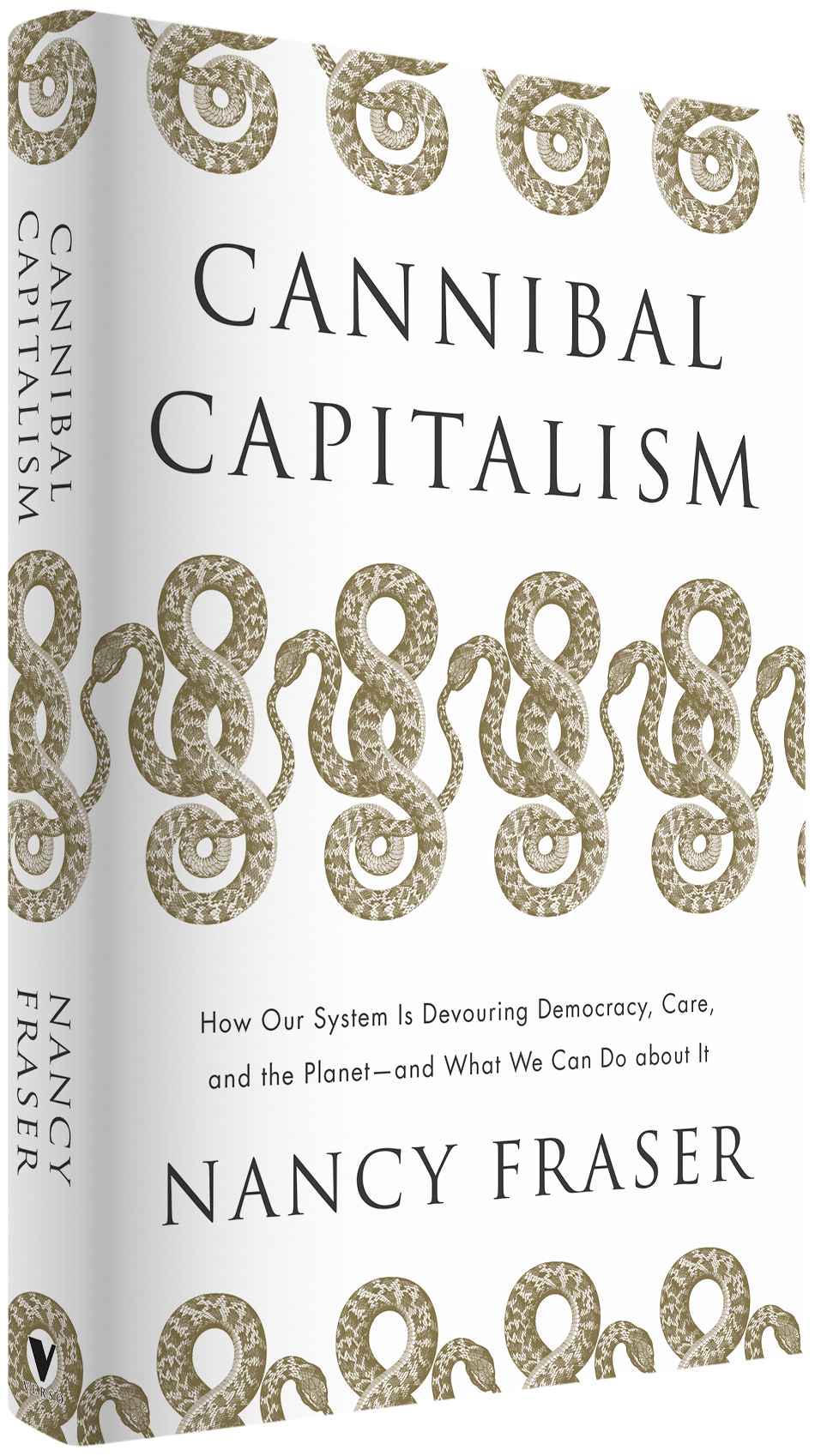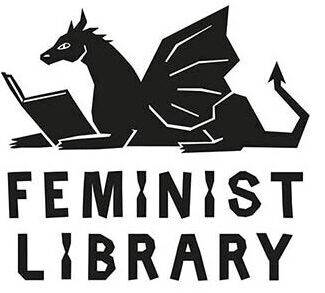Cannibal Capitalism – Nancy Fraser

“Readers of this book don´t need me to tell them that we´re in trouble.” With this gripping first sentence, Nancy Fraser sets the scene for the exploration of the malady that is capitalism in her newest book, Cannibal Capitalism – How Our System is Devouring Democracy, Care, and the Planet- and What We Can Do about It.
The critical Marxist feminist Nancy Fraser, Professor at the New School for Social Research, and author of multiple oeuvres such as the Fortunes of Feminism and The Old Is Dying and the New Cannot Be Born, sets to dissect all that accommodates and assembles capitalism, unmasking it as much more than an economic system. Here, capitalism is acknowledged as a preying exploitative social order that puts life at the mercy of capital. “Cannibal capitalism” is the chosen term to address this structure, a term that in itself is poetically masterful.
Fraser coins this term to highlight three decisive aspects of capitalism. To begin, Fraser denotes the colonial legacy of the term cannibal, a word replete with racist imagery applied traditionally to the other, the colonised. However, in this instance, the tables are turned, it is the colonialist, the capitalist class, that shows cannibalistic tendencies as it feeds off the rest to survive. This parallels beautifully with the racist origins of capitalism, a feature of our present order that is too often overlooked. Further, Fraser uses the definition of cannibalising, depriving one aspect of a machination for the purpose of sustaining another, to describe all that is sacrificed in the name of capital (families, communities, nations, habitats, ecosystems, etc.). As a final use of the term, Fraser envisions capitalism as an ouroboros, a self-cannibalising serpent that eats its own tail. Capitalism´s tendency to destroy and feed off its own conditions of possibility is emphasised here, highlighting its propensity for crises and self-destabilization caused by its internal contradictions. It is these contradictions that frame the book.
Fraser identifies four core contradictions within capitalism; (1) exploitation and expropriation, (2) production and reproduction, (3) society and nature, and (4) economy and polity. Four non-economic pre-conditions on which capitalism relies, and simultaneously demolishes. These contradictions are explored in four separate chapters, all inspiring and disturbing in equal parts.
In Glutton for Punishment: Why Capitalism is Structurally racist, Fraser explores capitalism´s entanglement with racial oppression. Capitalism relies on exploitation (waged labour) and expropriation (enslavement, territorial conquest, annexation, etc.). Profitable accumulation is only possible if both are present. Expropriation, however, is disavowed, creating capitalism´s first contradiction. The reliance of capitalism on social-reproductive activity constitutes the second contradiction as it is detailed in Care Guzzler: Why Social Reproduction Is a Major Site of Capitalist Crisis. Despite the essential character of reproductive work to maintain an exploitable workforce, it is made subordinate and subjugated to production, considered non-valuable.
The ravaging of nature to flourish capital accumulation, capitalism´s third contradiction, is tackled in Nature in the Maw: Why Ecopolitics Must Be Trans-environmental and Anti-capitalist. Nature´s supply is necessary for capitalist production, however, it is used and misused, exhausted and depleted, drained and emptied. Finally, Butchering Democracy: Why Political Crisis is Capital´s Red Meat, identifies capitalism´s reliance on public powers to create a crucial precondition: a legal framework that guarantees and sustains the capitalist order. Yet, capital continuously resents public power and evades its replenishment as it evades taxes. These four contradictions are brilliantly displayed in Fraser’s analysis of the COVID-19 pandemic.
This deadly crisis was caused by a zoonotic leap, the transmission of pathogens from wild animals to humans, most likely due to climate change and deforestation, due to the ravaging of nature. The crisis has exposed the essential character of care work and its rampant undervaluation. Further, it has disclosed which exploited and expropriated peoples were mostly infected by the crisis as they lacked access to resources such as vaccinations and medicine. Ultimately, it has revealed what eventuates when vital public infrastructures are abandoned for the benefit of capital.
Fraser makes a call for action. Now that capitalism is recognised as much more than an economy, we must change the whole institutionalised order that is capitalised society. We must invent a new societal order, redraw the set boundaries, and overcome all asymmetries of gender, sex, racial oppression, and political domination. How that will be achieved is up to our imagination.
Fraser´s stimulating theory redeems many of Marxism’s critiques. It looks past the traditional class struggle argument and takes Black Marxism, decolonial perspectives, and feminist and gender theory into consideration, combining them all to create a complete analysis of our current predatory system. Cannibal Capitalism is certainly worth the read. I invite everyone to read this book, to sit down and process and produce strategies on how we can redeem these wrongs.
Review written by Clara Isabel Girón Pacheco
